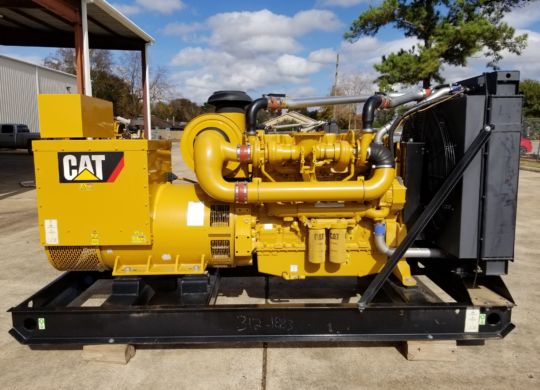The Main Characteristics of Diesel Generators
The Main Characteristics of Diesel Generators
Advantages of diesel generators
Diesel generators have a lot of advantages. Let’s delve into each one of them. Perhaps the main and most striking is that they offer great profitability. Although they are more expensive to buy, they consume less fuel and are made for long-term use. That is why the ratio of fuel consumption versus time of use makes them very profitable in the long run.
By choosing a diesel generator you will obtain maximum power capable of feeding high consumption equipment, but also of keeping all the electrical equipment in a home or office operational, for example.
The engine of this equipment has a longer useful life than that of generators that use other types of fuel. With proper maintenance, you will have a generator capable of operating properly for many years.
Likewise, they require less maintenance and are less recurrent than those that work with another type of fuel. This translates into a point in favor of profitability, the owner of the equipment will not have to invest so much in keeping it up to date and operating correctly.
So if what you are looking for is power and long-term profitability, it is best that you choose to buy a diesel generator.
Why buy a diesel generator?
With so many options for diesel electric generators on the market, it is understandable that you have this type of doubt, but we leave you a list of possible reasons why you should buy one of these equipment:
Alternative energy source: Know the environmental conditions of the area where you live and, if it is prone to the occurrence of natural disasters, it is better to think about buying one of these devices. The same happens if you have frequent electrical failures or the electricity in your house is not stable.
Main electrical supply: This is a case similar to the previous one, only if it were not for the electric generator there would be no electricity in your home, since you live so far away, or the area is under construction, and you do not have access to any main network.
Support team for specific activities. There are many industrial machines that need very specific loads to work with, so power them with a diesel electric generator.
Choosing a diesel generator: What you need to know
If you already have in your mind that buying a diesel generator is the best solution for the problems you are experiencing in terms of electricity supply, you should know some important points before choosing the model that best suits your needs.
Reduced mobility: Far from being a weakness, we are talking about equipment that weighs more than 100 kilos, which means that they must be installed in fixed places to be able to enjoy their full power.
Just power: You have a variety of models with different levels of generated power, from 20kw to 100kw diesel generators, from 200kw to 3000kw generators, all in order to fully satisfy your requirements. If you do not know what power you need, you can make a list of the equipment or machines that you want to use with the generator and thus be able to have an estimated figure.
Type of motor: Many of the models that you can find are three-phase due to their high performance in terms of power.
Does the noise bother you? If the answer is yes, better lean towards equipment that is soundproof.
Differences between diesel and gasoline generators
When we compare the generators that work with diesel and those with gasoline, we can see some differences that can affect our purchase decision.
- Perfect for continuous use: Models that use diesel have better performance in this type of use.
- They consume less fuel than a gasoline-powered device.
- They emit less gas into the atmosphere, which makes them greener than those that work with gasoline.
- Produce more noise than a gasoline model. Yet, you can find super-silent diesel generators in the market.
- They need less maintenance.
- Their use is allowed in places where equipment that works with gasoline cannot be installed.

